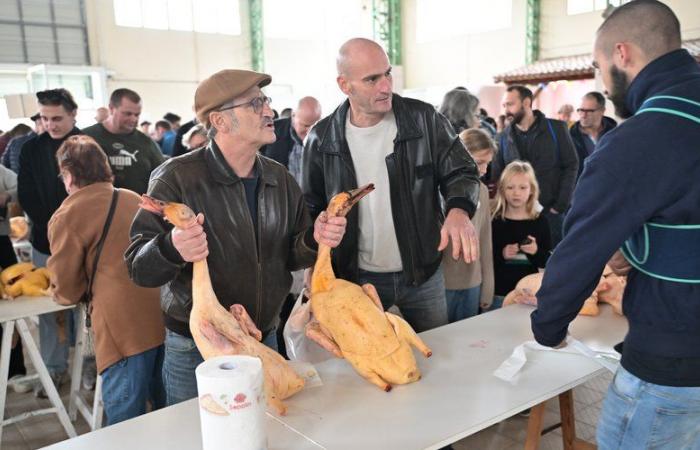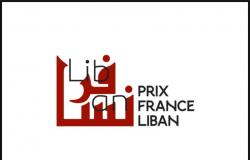
the essential
While France’s transition to “high risk” of avian influenza results in the confinement of ducks, breeding and force-feeding professionals are concerned about its consequences on the quality of their products.
It is almost 10 a.m. and dozens of customers from all over the region are patiently waiting for the whistle, the traditional “start” of the Gimont gras market. The end-of-year holidays are approaching, it’s obvious. The threat of bird flu too. Enough to encourage customers to come and do their shopping as quickly as possible on this Sunday, November 10, whenever the situation worsens.
Also read:
“It’s a disaster for Gers breeding”: with the transition to a high risk of avian flu, the duck industry is forced to re-confine
A regular at the meeting, this customer from Fontenilles (Haute-Garonne) came to stock up on foie gras. If he was able to find what he was looking for without any problem, around twenty producers having put more than 300 pieces on sale that morning, the choice seemed wider to him in the past. “4 or 5 years ago, I had the impression that there were more producers. Now, I have the impression that there are a little fewer. This is perhaps due to bird flu,” he commented.
“It always starts at about the same place.”
This impression seems widely shared, among consumers and producers alike. Rather discreet in the territory since the first vaccination campaign, launched in October 2023, avian influenza has not spared the profession in recent years. Its resurgence therefore makes the industry fear the worst since the detection of the virus at the beginning of the month in a Landes duck farm. “It’s worrying because it always starts in roughly the same place, in the Landes or the Pyrénées-Atlantiques,” testified Jean-Michel Dainèse, producer in Saint-Médard. “I’m quite pessimistic because in a while, it could happen. I hope I’m wrong.”
DDM – SEBASTIEN LAPEYRERE
With France moving into “high risk” of avian influenza, the first effects are already being felt, the confinement of ducks and poultry once again being obligatory everywhere in the territory, and particularly in the Gers. A decision received with concern and circumspection by producers, as Jean-Michel Dainèse highlighted. “It turns out that in other years, this has not really been a solution. Avian flu is still spreading,” he said.
“The ducks walk less so they build up a little less muscle”
Beyond the questions surrounding its presumed effectiveness, also raised by certain agricultural unions, confinement is singled out for its harmful effects on the quality of the product. “The ducks don’t go out, they are less well feathered. Breeders have to mulch a lot and they don’t necessarily have the straw they need in terms of volume,” said Jean-Michel Dainèse. An observation shared by this family of producers from Haute-Garonne: “The ducks walk less so they build up a little less muscle. They don’t gain that much weight so when we force-feed them, it’s a little more complicated and a little harder to sell, because they are smaller.”
Producer in Esparsac (Tarn-et-Garonne), Lionel Bonnevie summed up the problem encountered with confinement: “The quality of the ducks is not the same whether they are in the open air or locked up.” For consumers and producers alike, it was therefore better not to miss this market.





